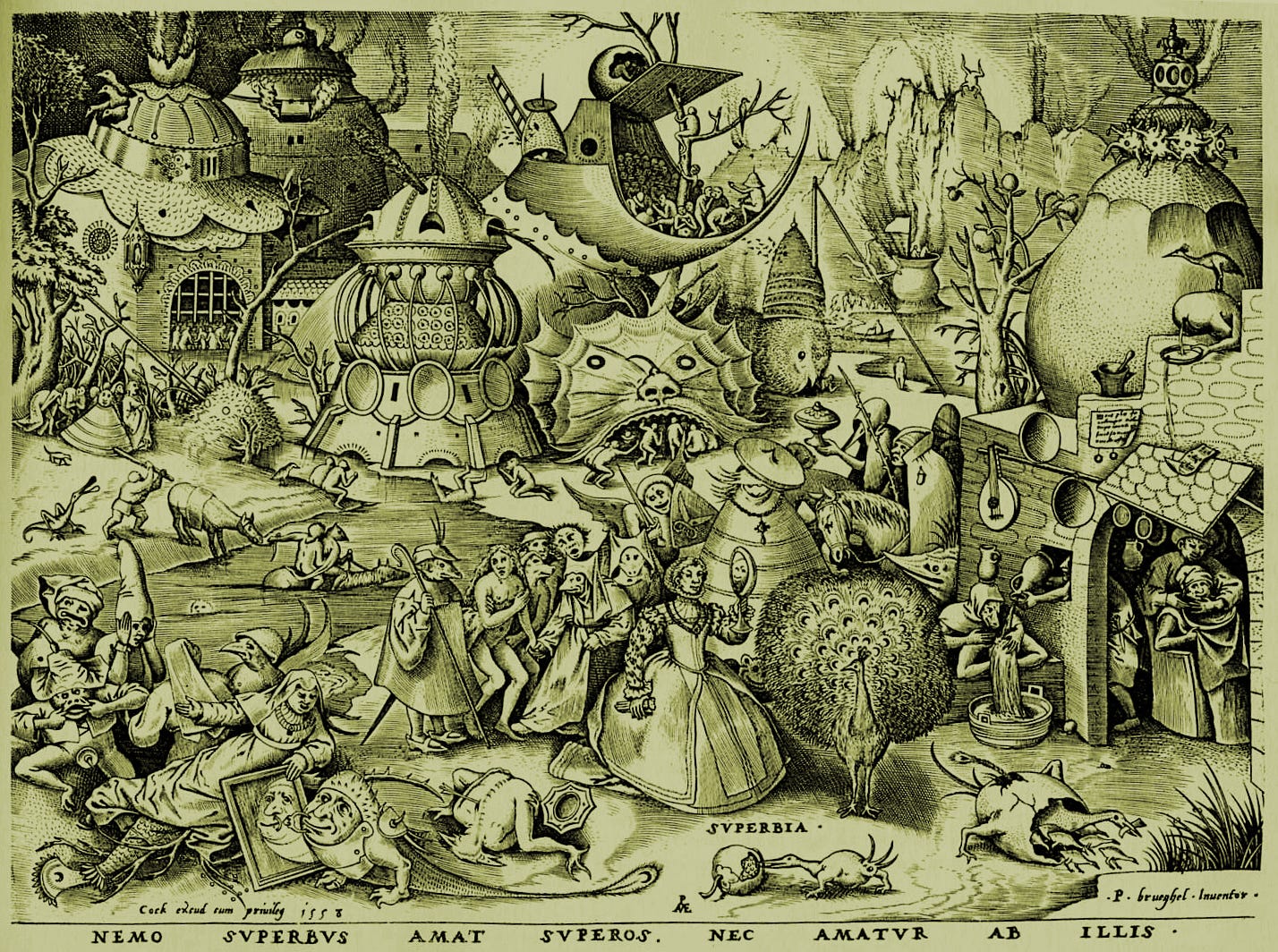Pride
The Machine Will Never Triumph, part thirty-six
Self-pity
I never saw a wild thing
sorry for itself.
A small bird will drop frozen dead from a bough
without ever having felt sorry for itself.1
No living thing, save for man, feels sorry for itself. Pride, in the Christian tradition, is viewed not only as one of the seven deadly sins, but as the worst sin of all. There is certainly an evil form of pride, namely pride caused by an over-inflation of the ego, narcissism, and hubris, but there is also a good form of pride, namely the act of being proud of oneself in one’s own being. To be secure and at ease in one’s own skin, and to love the life one was given as a gift of the Gods is not a sin, but the opposite of sin. The innate pride of all creation leads it to blossom into a myriad beautiful things, but when man just stagnates, he rots; and his rot can affect all of creation. As Lawrence writes:
Do you think that creation depends on man!—It merely doesn’t. There are the trees and the grass and birds. I much prefer to think of the lark rising up in the morning upon a humanless world.—Man is a mistake, he must go.—There is the grass, and hares and adders, and the unseen hosts, actual angels that go about freely when a dirty humanity doesn’t interrupt them—and good pure-tissued demons: very nice[…] If only man was swept off the face of the earth, creation would go on so marvellously, with a new start, non-human. Man is one of the mistakes of creation—like the ichthyosauri.—If only he were gone again, think what lovely things would come out of the liberated days;—things straight out of the fire[…] believe in the proud angels and the demons that are our fore-runners. They will destroy us, because we are not proud enough. The ichthyosauri were not proud: they crawled and floundered as we do.—And besides, look at elder-flowers and bluebells—they are a sign that pure creation takes place—even the butterfly. But humanity never gets beyond the caterpillar stage—it rots in the chrysalis, it never will have wings. It is anti-creation, like monkeys and baboons.2
Bibliography
Lawrence, D. H. The Poems. Edited by Christopher Pollnitz. Vol. 1. Cambridge: Cambridge University Press, 2013.
———. Women in Love. London: Everyman’s Library, 1992.
D. H. Lawrence, The Poems, ed. Christopher Pollnitz, vol. 1 (Cambridge: Cambridge University Press, 2013), 405.
D. H. Lawrence, Women in Love (London: Everyman’s Library, 1992), 121–22.




When man stagnates, he rots and takes creation down with him. But man is essential to creation, because a new world cannot come into being without mankind’s renewal. Instead of the present stagnation, a new flow of inspiration must come. I disagree with the present widespread belief that creation would be just fine, if not better, if mankind vanished.